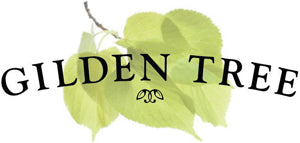What is Natural Cotton?

All Cotton is natural, right? Well, yes and no.
There is a range of natural - from cotton which is grown in certified organic fields and processed without chemicals, to cotton which has been grown using chemical fertilizers, pesticides and herbicides.
Modern farming methods often lead to spraying Cotton plants with a chemical defoliant just before picking. The defoliant wilts the leaves and makes it easier to harvest the cotton boll. Of course the cotton itself is soaked in defoliant too, and during the manufacturing process other chemicals are used to “improve” the fibers.
Technically, it's still "natural" because it's still a plant, but the effect of this chemical use has a negative impact on the people, plants and land it's used on.
For more than 30 years, we've worked with farmers in the Indian Subcontinent and our manufacturers to create soft, truly natural cotton towels & robes that are free of defoliants, dyes and synthetic chemicals.
What is Oeko-Tex Standard 100?

Our textiles are all Oeko-Tex Standard 100 Certified. Oeko-Tex, based in Hohenstein, Germany certifies items, including every thread, button and accessory, testing against a list of over 1,000 substances that are harmful to your health but also to the environment.
Products that carry the Standard 100 label have been rigorously tested and proven free of harmful levels of toxic substances, and they are reviewed at least once a year, using a globally standardized test criteria.
A Standard 100 certified item, produced and sold in different parts of the world, always adheres to the same standards, limit values and testing methods. By testing the same samples in different laboratories using the same methods, they create precise comparisons and thus continuously optimize their certification process.
Why do we use Peroxide and not Chlorine to bleach white towels?
Chlorine bleach has a long history of being used to bleach fabric, but at great cost to the environment. An extremely harmful compound called Dioxin is created as a byproduct of chlorine bleach manufacturing. Dioxin accumulates in the fat tissue of humans and wildlife, is known to cause birth defects, and genetic mutations, and is a suspected carcinogen. Accidental release of Dioxin has already caused untold damage to the environment.
Peroxide does not create Dioxin and has been used for years by both parents and doctors to sterilize wounds and instruments and has been approved as a natural bleaching agent in Europe.
What about the towels which are in different colors?
For items which are dyed, we use reactive dyes, which are processed at a cooler temperature than traditional dyes, and are generally less harmful to the environment. Our dyes are all Azo-free.
What about Organic Cotton?
We're often asked if our cotton is "organic cotton". To be certified organic means that a farmer has met strict requirements for growing, and that a certifying authority has overseen and approved the process.
Our cotton, while not certified organic, has been carefully grown with as little chemical treatment as possible and is not sprayed with defoliants before being picked. We use gentle, mechanical means to soften and strengthen our fabric and white products are only bleached with Peroxide. That's our “Natural Cotton.”
